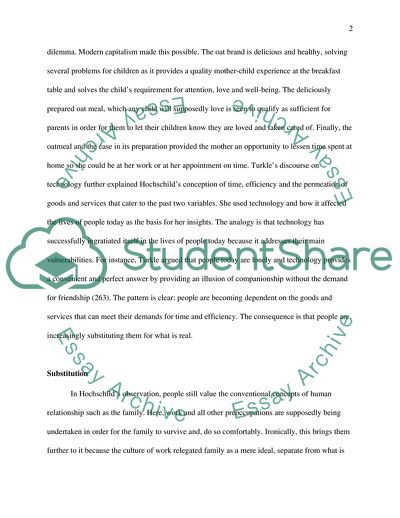Cite this document
(Technology and Capitalism Report Example | Topics and Well Written Essays - 1250 words, n.d.)
Technology and Capitalism Report Example | Topics and Well Written Essays - 1250 words. https://studentshare.org/sociology/1760524-how-if-at-all-has-technology-in-terms-of-turkle-influenced-modern-american-capitalism-in-terms-of-hochschild-and-what-if-any-are-the-consequences-of-this
Technology and Capitalism Report Example | Topics and Well Written Essays - 1250 words. https://studentshare.org/sociology/1760524-how-if-at-all-has-technology-in-terms-of-turkle-influenced-modern-american-capitalism-in-terms-of-hochschild-and-what-if-any-are-the-consequences-of-this
(Technology and Capitalism Report Example | Topics and Well Written Essays - 1250 Words)
Technology and Capitalism Report Example | Topics and Well Written Essays - 1250 Words. https://studentshare.org/sociology/1760524-how-if-at-all-has-technology-in-terms-of-turkle-influenced-modern-american-capitalism-in-terms-of-hochschild-and-what-if-any-are-the-consequences-of-this.
Technology and Capitalism Report Example | Topics and Well Written Essays - 1250 Words. https://studentshare.org/sociology/1760524-how-if-at-all-has-technology-in-terms-of-turkle-influenced-modern-american-capitalism-in-terms-of-hochschild-and-what-if-any-are-the-consequences-of-this.
“Technology and Capitalism Report Example | Topics and Well Written Essays - 1250 Words”. https://studentshare.org/sociology/1760524-how-if-at-all-has-technology-in-terms-of-turkle-influenced-modern-american-capitalism-in-terms-of-hochschild-and-what-if-any-are-the-consequences-of-this.


